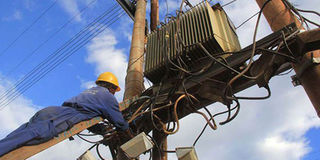Electricity inaccessibility does not favour holding digital elections

What you need to know:
- Looking at the recently released revised electoral roadmap for 2021 General Election, the first of its kind given electoral campaign duration and prohibited mass rallies.
In any country, Uganda inclusive, elections and other political processes are pivotal to the quality of a country’s governance. Elections can either advance or set back a country’s long-term democratic development as well as regional and global foreign policy priorities. Elections are a key benchmark in any nation-building project, allowing failed states and divided societies to reconstitute a source of commonly accepted authority.
The most vital principle defining credible elections is that they must reflect the free expression of the will of the people as clearly stated in the first article of the 1995 Constitution as amended that “all power belongs to the people, who shall exercise their sovereignty in accordance with this Constitution.”
To achieve this, elections should be transparent, inclusive, and accountable, and there must be equitable opportunities to compete in the elections. These broad principles are buttressed by several electoral process-related obligations, as well as a number of key rights and freedoms. The electoral cycle approach depicts elections as a continuous, integrated process made up of building blocks that interact with and influence each other, rather than as a series of isolated events.
Looking at the recently released revised electoral roadmap for 2021 General Election, the first of its kind given electoral campaign duration and prohibited mass rallies. The EC has rolled out scientific elections programme that involve contestants campaigning using TV, radio, and other media platforms. This is happening in a Uganda where electricity access has reached nearly 60 per cent of the population in urban areas and only 18 per cent rural areas. Relating this to technology that depends on electricity to operate means that 40 per cent from urban areas and 82 per cent from rural areas will be left out the electoral process. Therefore, the level of energy accessibility in the country does not favour holding of scientific elections.
Brighton Aryampa,
[email protected]


